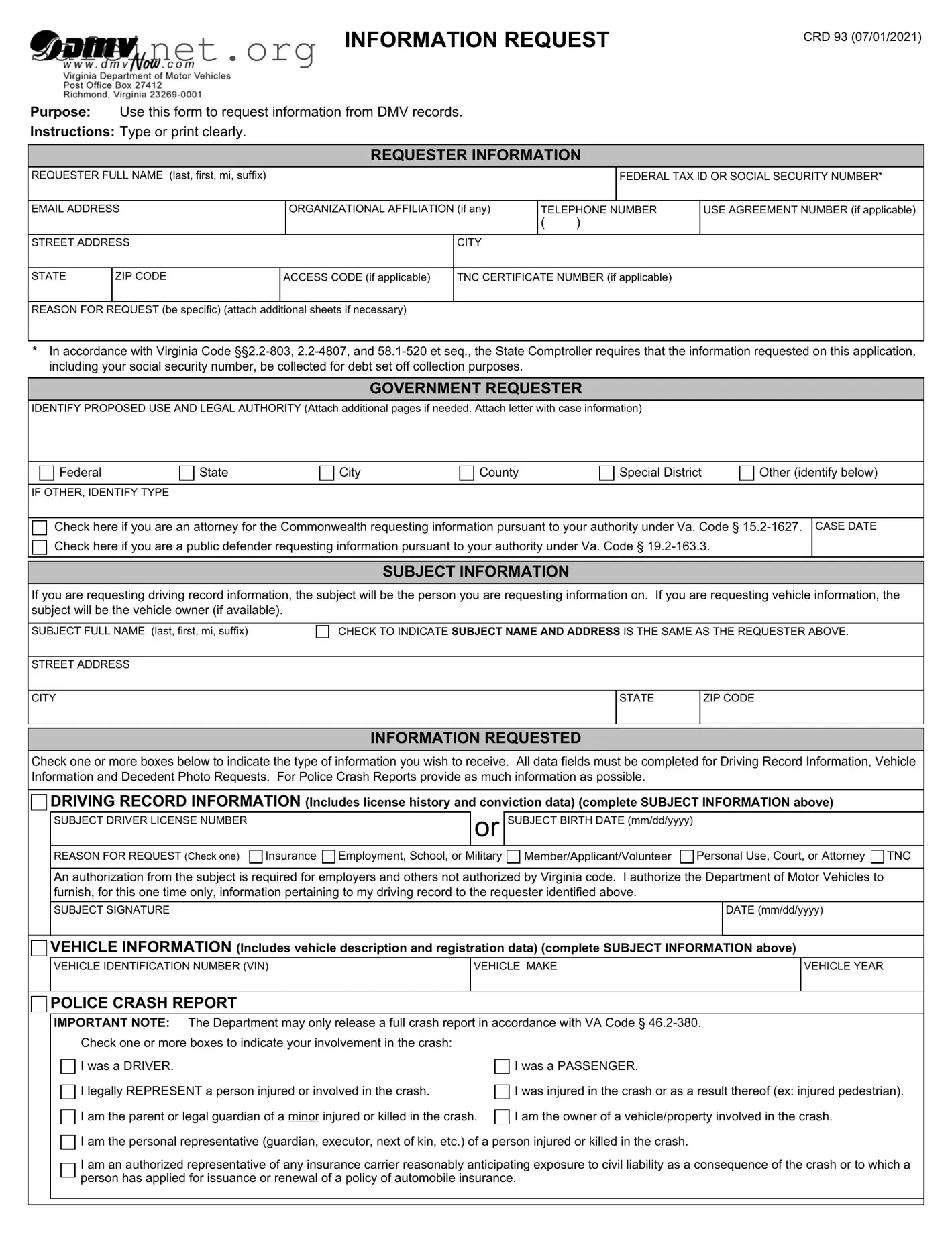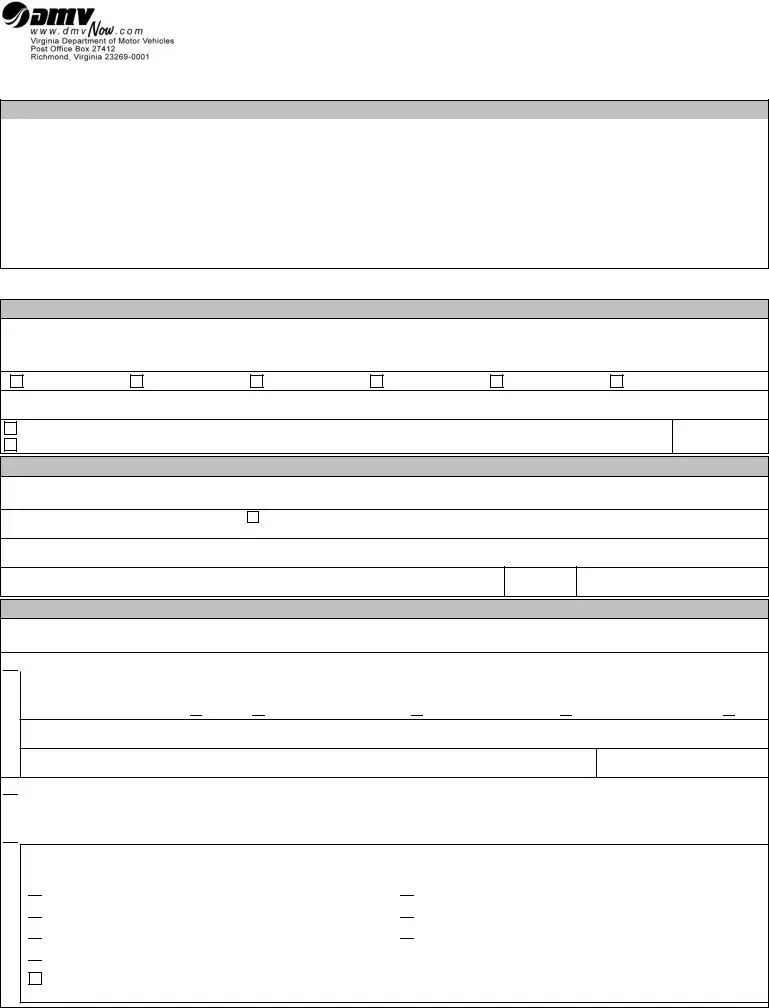What is the purpose of the CRD93 form?
The CRD93 form is used to request information from Department of Motor Vehicles (DMV) records. Whether you need driving record details, vehicle information, or specific crash reports, this form helps facilitate your request. Clear and correct filling of this form ensures that the DMV can process your request efficiently and accurately.
Who can submit a CRD93 form?
Anyone may submit a CRD93 form, provided they have a legitimate reason for requesting information. This includes individuals, attorneys, public defenders, and governmental entities. If the requester is not the subject of the information being requested, written authorization from the subject may be needed, particularly for employers or schools.
What information is required on the form?
You must complete several sections of the CRD93 form. This includes your identification details such as full name, contact information, and the reason for your request. Depending on the type of record you seek, additional information such as the subject's full name, date of birth, and pertinent vehicle details may also be required.
Is there a cost to request information using the CRD93 form?
Yes, there are fees associated with the information you are requesting. For example, obtaining a driving record or vehicle record incurs a fee of $9. Other services, such as police crash reports or decedent photos, also come with their respective fees. It's important to check the fee schedule carefully before submitting your request to ensure you include the necessary payment.
How should I submit the CRD93 form?
The completed form can be submitted to the DMV via mail. Ensure that you include a check or money order made payable to DMV if you are sending it through the postal service. If you prefer to submit the form in person, contact your local DMV service center for details on their submission procedures.
What happens if my request is denied?
If your request for information is denied, you will typically receive a notice explaining the reason for the denial. Depending on the circumstances, you may have the option to appeal the decision. Stay informed about your rights regarding access to public records, as they vary by state and type of request.
What are the legal implications of using the information provided?
It is crucial to understand that information obtained from the DMV records is privileged and confidential. The CRD93 form includes a certification statement regarding the proper use of the data. Violating these terms, such as using information for solicitation or sharing it with unauthorized third parties, may result in civil and criminal penalties.





 Insurance
Insurance  Employment, School, or Military
Employment, School, or Military 
 Member/Applicant/Volunteer
Member/Applicant/Volunteer  Personal Use, Court, or Attorney
Personal Use, Court, or Attorney 
 TNC
TNC


 POLICE CRASH REPORT
POLICE CRASH REPORT
 I was a DRIVER.
I was a DRIVER.
 I legally REPRESENT a person injured or involved in the crash.
I legally REPRESENT a person injured or involved in the crash.
 I am the parent or legal guardian of a
I am the parent or legal guardian of a 
 I was a PASSENGER.
I was a PASSENGER. I was injured in the crash or as a result thereof (ex: injured pedestrian).
I was injured in the crash or as a result thereof (ex: injured pedestrian). 
 I am the owner of a vehicle/property involved in the crash.
I am the owner of a vehicle/property involved in the crash.
 I am the personal representative (guardian, executor, next of kin, etc.) of a person injured or killed in the crash.
I am the personal representative (guardian, executor, next of kin, etc.) of a person injured or killed in the crash.